Diverse Educators: A Manifesto

Written by Hannah Wilson
Founder of Diverse Educators
In August 2020, at the end of the first UK lockdown to curb the spread of Covid-19, Bennie and I sat in the sun in my garden, down the road from the school that we had started together a few years previous and we drafted a proposal for a book. We had met through Twitter and #WomenEd 5 years before that, we were both English teachers and secondary school leaders, we are both feminists who are passionate about diversity, equity and inclusion in the school system. When I secured my headship, Bennie applied to my Deputy Headteacher, and led on our values-based curriculum with diversity and equality embedded across it. A regular topic of conversation in the time we worked together was about the books we were reading and the books we were going to write, individually and together. We knew it would happen one day!
Many of you will know that Bennie is the reason Diverse Educators was started, she came to my office one day and shared her frustration with me at having to split herself multiple ways to go to different events each weekend to explore her intersectional identity. I checked my privilege as a heterosexual, cisgender, able-bodied white woman and reflected on this. We discussed the idea of hosting one event and inviting the communities from #WomenEd, #BAMEEd, #LGBTed and #DisabilityEd to come together, at the same time, under one roof to have a joined up conversation about identity. Our inaugural Diverse Educators event was in January 2018, at which #LGBTed officially launched and Bennie closed the grassroots event with a powerful message: ‘Don’t Tuck in Your Labels’.
Fast forward three years and Bennie is now a Deputy Headteacher at an all-through school where she is leading on curriculum and I am working independently as a Leadership Development Consultant, Facilitator and Coach specialising in diversity, equity and inclusion. We launched the Diverse Educators website, with the help of our partners, in the middle of a global pandemic in response to the spotlight on racial inequities, and the amplification of Black Lives Matters, triggered by George Floyd’s murder. At our first virtual event in June 2020, we were joined by over thirteen thousand people.
The world has finally woken up to the need for social justice, society can no longer ignore it and the school system can no longer not prioritise the urgent need to embed the diversity, equity and inclusion agenda strategically into our schools. Bennie has recently published her first book: A Little Guide For Teachers: Diversity in Schools and we are now inviting the #DiverseEd community to lean in and contribute to our book: Diverse Educators: A Manifesto.
Our book will be structured, like our website, around the Equalities Act. There will be ten chapters, one for each of the nine Protected Characteristics (Age; Disability; Gender Reassignment; Pregnancy and Maternity; Marriage and Civil Partnership; Race; Religion and Belief; Sex; Sexual Orientation) with a tenth chapter exploring intersectionality.
Each chapter will have a chapter editor who will work with ten contributors offering a multiplicity of perspectives on the protected characteristic being explored in the chapter. Each submission will be 1200-1500 words long. Each contributor will interweave personal and professional narrative, framed in theory, to respond to current and historic debates. The chapter editor will write the introduction to the chapter to give context and to frame the chapter’s narratives, arguments and provocations.
We are committed to capturing the collective voice of our community and to showcasing the diverse lived experiences of educators. We are keen for Diverse Educators: A Manifesto to be both academic and accessible. You can review the style guide here. We intend for the book to be solutions-focused with high-quality input on practice, pedagogy, people management and policy.
We would love to hear from you if you would like to contribute. You can submit an expression of interest here. Thank you in advance for your time, energy, experience, expertise and support in contributing to our #DiverseEd book, we are looking forward to celebrating the collective commitment and amplifying your voice.
Why Decolonise the Curriculum?

Written by Nuzhat Uthmani
Primary Teacher specialising in Global Citizenship and Antiracist education
I posed a survey through @Scotedpolls recently in which 25% of respondents said they did not feel they needed to decolonise the curriculum. Despite the majority of respondents expressing an interest in learning more, this statistic stuck with me. Is it because educators don’t understand what the term means or is it because they don’t see that there is an inherent problem with our curriculum? Let me address both these possibilities.
This time last year, even I had not heard of this term. Lockdown allowed me the freedom to invest in my own professional development and, as an advocate of global citizenship, I learnt more about decolonising the curriculum and its impact on the education system.
Traditionally, much of our curriculum is framed around the successes of the British Empire. It fails to acknowledge the contribution of communities and nations without which the empire would not have been as successful or wealthy as it once was. The stories of what those nations sacrificed as a result has been hidden away for centuries. Decolonising the curriculum refers to the inclusion of those stories, characters and contributions of others around the world that has impacted on the lives that we live today.
The Black Lives Matter movement is seeking to do this by raising awareness of how the UK gained from the slave trade while committing human rights abuses on those communities. However, as educators we must be mindful of not promoting a stereotypical view of certain groups. When we teach about slavery, we should be mindful to also teach about the contribution of Black, Asian and Ethnic Minorities to Science, the Arts and Politics for example.
I’m on a mission now to embed diversity across all the curriculum. It does not mean scrapping everything we know and teaching new topics, instead it involves a mind-shift from educators, ensuring the inclusion of diverse examples and resources in their daily teaching. It means ensuring that one narrative doesn’t dominate out curriculum but a diversity of perspectives and experiences are represented.
So, what about those in our community who feel nothing needs to change? My question to those is how inclusive is your practice? Holding standalone themed weeks is a box ticking exercise we need to move away from and embrace diversity in all that we do. If you rarely use books with characters of colour, if you only use examples from the Western world, then that is not inclusive to those learners who never see their heritage valued within the classroom, so please think again.
If you want to learn more please check my blog on Global Citizenship Education for lesson plans, research, and links to a variety of organisations who are all working towards establishing anti-racist education and can help you get started on your journey to offering a more inclusive and diverse curriculum.
A Reflection on My First Year of Teaching, Inspired by #DiverseEd

Written by Char Aramis
A primary NQT who uses they/them pronouns. Char blogs at transteacher.wordpress.com
Along with many others, I had the joy of listening (and tweeting!) along to the online #DiverseEd event on 17th October. When Hannah Wilson (@Ethical_Leader) asked me to write a blog response, it took me a while to decide on a subject, but we all know that the best way to improve is to reflect on what we’ve done before, so here is a reflection on my first year of teaching through a lens of diversity and inclusion.
I am going to use the things I have learned over the last few months to reflect on the things that I taught and the way that I taught them – specifically topic in terms 1, 2 and 4, because covering everything would make this blog far too long. However, I am still new to this – and to teaching! – so I welcome any additional points or suggestions you may have after reading this.
Because of the topics we studied, most of the issues here relate to race, ethnicity and nationality. For context, we were based in an area in the South West of England where nearly 85% of people were born in the British Isles. Of the rest, a good chunk hail from Poland, with others from Romania, the Philippines, Turkey and Bangladesh making up the rest. In my class, about half of the children had English as an additional language, including children from all of the countries listed above plus one or two others. Roughly two-thirds of them would generally be considered White.
So then, let’s get started. As I’m sure many schools did, we ran a Black History topic at the start of the year. Each year group focused on a significant Black person from history and we studied Nelson Mandela. We also briefly mentioned Martin Luther King Jr and Katherine Johnson in an end-of-term art project, which was displayed in the school for the rest of the year.
Now, if I recall correctly, these had been decided before I joined the school. Nonetheless, I don’t think I noticed at the time that thing that appears strikingly obvious to me now: none of these figures is from British history. Most of them, as is common in our studies of Black history in British schools, are from the United States and Nelson Mandela is of course from South Africa. I wonder if perhaps this is worse: I expect South Africa – a country that many of these pupils may never have heard of – seems much more remote and less relevant to them than America, which they at least engage with regularly through film and television.
We discussed racism and protests and fair treatment, but I certainly lacked the confidence and knowledge to address these subjects in the way they deserved (it was my first ever term of teaching). I do still feel that I would benefit from further training and resources to support this.
If I were to teach Black history as a topic again, I would definitely seek to choose a figure or subject that is more relevant to British history. The Bristol bus boycott or Windrush, for example. If I had to teach Nelson Mandela, I would link it back to racism in the UK around the same time – although we had no official segregation, I could teach about Britain before the Race Relations Act(s) and cases such as that of the marriage between Seretse Khama and Ruth Williams.
Our term 2 topic was extreme weather, specifically tropical storms. We focused on tornadoes and Kansas because we linked this to The Wizard of Oz. There was essentially no representation of any under-represented groups here – focussing for the moment on the topic teaching and not any subjects that are or could be discussed in relation to the book.
In the interests of allowing children to be seen in our curriculum and broadening pupils’ geographical knowledge beyond “the West” (I notice that the National Curriculum for KS2 only requires geographical study of regions of “the United Kingdom, … a European country, and … North or South America”), we perhaps could instead have looked instead at the Philippines, Bangladesh or the Pacific Islands (one child in the class was from Melanesia), which can also experience tornadoes, typhoons and cyclones. The difficulty here I think would be in deciding whether to focus on one over the others and if so, which one. Additionally, it would have been very specific to my class and much less relevant to the parallel classes in the year group. However, it could have been an opportunity for certain pupils to talk about the countries their families come from and perhaps teach their peers something of the language they use at home.
In term 4, we studied the Amazon Rainforest. I had planned a lesson on the history of the major city of Manaus, including its (pre-)colonial history and the impacts of the rubber industry, but I never got a chance to deliver it because we closed for lockdown. This is a subject which, I’m sure, deserves more than one lesson but the focus of our topic was actually on the physical geography – rivers and rainforests – as well as map work with a little human geography squeezed in.
I never fully finished the plan for this lesson so it’s difficult to evaluate it, but if I were to come back to this topic, I think it is worth considering the perspective from which I tell this history. It is important to show the effects that the arrival of Europeans had on indigenous populations and their home, and to consider the way they were treated. I do think I would probably need some support to do that topic justice.
There is an awful lot more to be considered regarding both the content and approach of my first year of teaching but that will have to wait for future blog posts – probably over on my own blog. Thank you for reading – any comments, feedback or questions are welcomed and encouraged.
Interactive Diversity Calendar 2021

Written by Dual Frequency
Dual Frequency is a teaching resource provider that seeks to promote dialogue in relation to inclusion
This December, Dual Frequency is thrilled to share with you a brand new interactive diversity calendar that can be used in schools, education settings and other organisations to ensure you never miss a significant date in the EDI calendar.
Why is the diversity calendar important?
Because diversity matters, every single day! The more we immerse ourselves in diverse groups, the more we will be able to celebrate positive representation of these groups, and the richer our communities become.
How can you implement the diversity calendar within your organisation?
The diversity calendar includes a mixture of equality, diversity and inclusion related events along with key dates. This is not intended as an exhaustive list. At a glance you can see the key dates that are listed each month, click the date to be signposted to a resource and more information, plus suggestions of how you can celebrate the date.
How does the colour code in the diversity calendar 2021 work?
The calendar is colour coded to the strands of the Equality Act 2010. It is important to value everybody’s contribution to society all year round: far too many communities are so regularly overlooked in the Gregorian calendar. By focusing on the protected characteristics that fall under the Equality Act, our hope is these communities will no longer be overlooked but celebrated in contrast.
If you require the calendar in a different format, such as large text or on an (accessible) yellow background, then let us know and we will do our best to meet your requirements.
How do I get my calendar?
Download yours right now by clicking this link: https://www.dualfrequency.co.uk/diversity-and-inclusion-calendar-2021
If you are in a position to make a donation for your calendar, then we appreciate this. It helps to keep a grassroots organisation like Dual Frequency running and makes a huge difference to our community fund which ensures we can pay our contributors for their time and efforts.
Lest We Forget
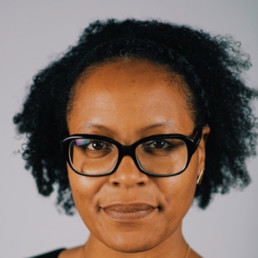
Written by Angie Browne
Education leader and founder of Nourished Collective. Author of Lighting the Way: The Case for Ethical Leadership in Schools
I have been busier than ever lately, which is a great problem to have, but as I was explaining to a group of school leaders this week, it’s also a sobering problem to have. Sobering because most of my work comes from supporting organisations who are embracing Diversity, Equity and Inclusion in the wake of the murder of George Floyd on May 25th 2020 in Minneapolis, Minnesota.
As I am going about my work, a refrain that repeats itself over and over is ‘lest we forget’. For most of us, ‘lest we forget’ has come to have meaning through commemorative war services, services honouring soldiers that have fought and died. However, the phrase, with biblical roots, is generally attributed to Rudyard Kipling’s usage in his poem ‘Recessional’.
It seems curious to have landed on this phrase, used to celebrate British imperial power and rue its demise by Kipling. Curious because I now use it with such de-colonising intent. But, the mind does strange things and perhaps, because I am an English teacher, I so often find myself with fragments of phrases echoing about the chamber of my mind with no direct realisation of the connections being made in there, the relevance to events past and present.
Inheritance, legacy and leaving the world in better shape than I found it are such important concepts for me. I feel grateful to my ancestors daily, seek to be a good ancestor as much as I can and work in ways that allow me to live out an ambition of leaving behind something ‘good’.
I cannot read ‘Dulce et Decorum Est’ without it bringing a lump to my throat. Who is not haunted by the final lines of the poem? Every single time I taught this poem the urgency of English teaching, of education and of creating a world in which our young were not sent to senseless deaths stirred me.
If you could hear, at every jolt, the blood
Come gargling from the froth-corrupted lungs,
Obscene as cancer, bitter as the cud
Of vile, incurable sores on innocent tongues,—
My friend, you would not tell with such high zest
To children ardent for some desperate glory,
The old Lie: Dulce et decorum est
Pro patria mori.
Who among us is not moved by the futility of youthful death articulated in Brooke’s ‘The Soldier’. With a boy of my own now, with young male cousins and nephews galore, imagining a past in which they were sent to a far off end is heart-breaking, and the urgency of creating a better future feels ever more important.
If I should die, think only this of me:
That there’s some corner of a foreign field
That is forever England. There shall be
In that rich earth a richer dust concealed;
A dust whom England bore, shaped, made aware,
Gave, once, her flowers to love, her ways to roam;
A body of England’s, breathing English air,
Washed by the rivers, blest by suns of home.
‘Lest we forget’ comes to me when I deliver Diversity, Equity and Inclusion work because we must not keep churning out the mistakes of the past, we must not forget those that have died in senseless circumstances.
‘Lest we forget’ means that I punctuate my work with the people and the places of those whose lives we commemorate as we learn about the limitations of our humanity and commit to doing better. It means that we remember Stephen Lawrence, the black British teenager who was murdered on April 22nd 1993 in a knife attack in London by a group of his contemporaries. It means that we recognise a bus stop in Eltham, a small corner of South-East London where lies a richer meaning, a responsibility we all have to do better.
As educators the detail about Stephen Lawrence and the boys who murdered him are essential. On the day of Lawrence’s murder he had been at school, his murderers were also of school age. It is vital to my work that we anchor details like this and not allow ourselves the get-out clause of distant proximity, of hazy memory, of foggy facts. Not allow this to obscure the urgency of the work we all know we need to undertake. Work that will ensure that no teenager dies alone at a bus stop, no teenager leaves our school gates and commits such a heinous and hate-filled crime.
‘Lest we forget’ means we remember Bijan Ebrahimi, a disabled Iranian refugee murdered in Bristol on the July 14th 2013 by a man called Lee James. Lee James had been, but a 17-year-old boy when the hate-fuelled campaign against Ebrahimi had begun. Let’s not shy away from the detail and let’s be clear on the facts. Ebrahimi was beaten, dragged into the street and set alight to by a mob who had lost their minds. There is a corner of a street in Bristol where lies a richer meaning, a responsibility we all have to do better.
‘Lest we forget’ means we anchor our work to a deeper purpose. We commit to the individuals whose deaths should make for a future in which it never happens again. In the ambition, the scope, the reach of the work we engage in to tackle homophobic, transphobic and biphobic behaviour we remember Ian Baynham. We say his name. We compute the detail of the brutal attack of a 62-year-old gay man on September 25th 2009 in Trafalgar Square. We acknowledge that his attackers were of school-age at the time of the attack that led to his death. We commemorate his life in a small corner of Trafalgar Square, acknowledging a richer meaning, a responsibility we all have to do better.
At the heart of Diversity, Equity and Inclusion work for me is a desire to be respectful enough to know who we remember and why. At a personal level, it’s about a past that stretches way back to times when my ancestors were enslaved, put on boats and then brutally put to work, my responsibility to them is to make the absolute most of my liberation. At a societal level, it’s about saying the names of the people who have given their lives needlessly, and collectively understanding what we want and need to do differently to create the kind of society we are all proud of. At an institutional level, it’s about being bold enough to give the lives of Stephen Lawrence, Bijan Ebrahimi, Ian Baynham and countless others meaning through the ambition of our work, our curriculum, our institutional cultures, our organisational structures and processes.
So, over the coming weeks and months, I urge you not to forget, not to get sloppy about who we remember, why we remember them and what our remembrance means for the future. I encourage you to take care and not slip into the laziness of statements like ‘when all the George Floyd stuff happened’. Remember, with care and attention to the details, the dates, the names and follow that golden thread of careful thought through to its manifestation in precise, detailed and luminary action in your work and your life.
A Reflection - For my daughters and young girls everywhere
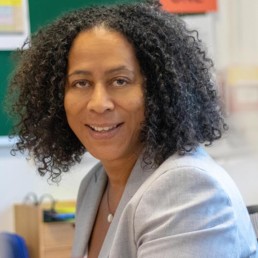
Written by Evelyn Forde
TES Headteacher of the Year 2020, Future Leader participant 2008, NPQH, ASGS Board Member and ASCL Council Member
Whilst I am revelling in the success of winning HeadTeacher of the Year at the TES Awards at the weekend, I thought it timely to capture what this truly means to me as I consider my own personal journey, the unstinting support I have had along the way and my continued commitment to raise the profile of BAME leaders through my work with ASCL and how I can use my privileged position as Headteacher to influence and make a difference.
When I won on Friday, my 16 year old daughter asked me how I felt and I said, overwhelmed and that I would have loved my parents to have been around to celebrate with me so that they could see that the sacrifices they made for me and my siblings was worth it. It’s also hard to put into words what it means to have left school with no qualifications, to have raised two children whilst juggling University, cleaning people’s houses and thinking about how I could put food on the table (we often talk about our lemon curd sandwiches!) to this point in my life, now.
Soon after having my second daughter I quickly realised I needed to go back to school and get the education that would make a difference for all of us. I needed to show my girls the value and importance of education and I needed to pay the bills! I didn’t have privilege, class or money and so I drew upon support of friends and family. I started with a night course in child development, then I did an Access course into higher education and it was here my teacher encouraged me to look further than my local University and took me to visit SOAS. This was probably the first time throughout my time in education that someone took the time to ‘tap me on the shoulder’ and to believe in me, to show me that there is a world of possibilities out there, and for that I am immensely grateful.
From my NQT year at White Hart Lane to now as Headteacher at Copthall School, I have had people on the side-lines supporting me on my journey, from my friends who would help with childcare, who would hold me up when at times it was all too much, to colleagues and Coaches who would steer me in the right direction, offering advice and guidance at the most crucial of times. So that is why I know the HT of the Year Award, is not just about me, it is about everyone who has travelled the road with me and shared in the highs and lows on the way.
A fellow Head messaged me and said winning the award sends out important messages to the next generation, inspiring girls and children from minority backgrounds to believe they can make a difference, and I firmly believe that too. I also hope it sends a message to all my fellow BAME colleagues in education, that whilst the journey to leadership will require hard work and will still come with challenges, those challenges are not insurmountable. Working with ASCL to make systemic change is really important to me, as my lived experiences are what drives me ever more. I also want to be part of a system that has true and not tokenistic representation at all levels of leadership so that our children can see people that look like them. I also want to use my position as a Headteacher to talent spot, to tap colleagues on the shoulder and to always remember never to pull that ladder up behind me as the journey to success is rarely achieved by you and you alone – and don’t I know it!
Biden Wins!
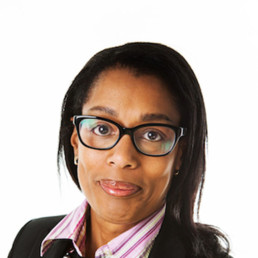
Written by Dianne Greyson
Director of Equilibrium Mediation Consulting and Managing Partner - Synergised Solutions Ltd
When I saw the announcement on Saturday 7th November 2020, I was so happy. I jumped up and down, I was so elated. People may think this is an odd response from someone who lives in the UK. Not at all, there are many people in the UK who felt the same way I did. Emotions were on full display. My twitter feed was immersed with joy and happiness. As I continued with my happy thoughts, I began to wonder why I felt the way I did and why others felt like me. It really wasn’t difficult for me to work out.
Trump represents all that is wrong in the world. He wanted to divide his nation and the world by creating an atmosphere of hate towards those who did not look like him or think like him. His desire to rule in this way showed his need to dominate. He empowered like minded people to rise up and deliver a wrath of hatred which I imagine he hoped would create some sort of master race.
He is the epitome of all that I fight against. As a black women, I use my voice to fight against those who wish to create division and dominate others because they think they have a right. The Joy that I felt about Biden’s win, is the joy that I want to continue to feel when I am advocating for the rights of people to feel valued and respected, no matter what ‘group’ they belong to. My continuous campaigning on the Ethnicity Pay Gap is just one ways for me to visibly demonstrate through action the injustice that has befallen black, Asian and ethnic minorities because others feel they have the right to treat us differently.
Like many of us who are advocating for the rights of others, Biden has a tough road ahead, I hope with the combined strength of Vice President Kamala Harris they can get into some ‘good trouble’ to make the change that USA needs. I hope that we can all learn from this moment and feel reinforced that, when we advocate for the rights of people who have been deliberately treated badly because of structural discrimination, that we are on the side of history.
I would like to leave you with a quote from the amazing Maya Angelou:
“Develop enough courage so that you can stand up for yourself and then stand up for somebody else.”
The need for a trauma-informed, bias-aware and compassionate curriculum
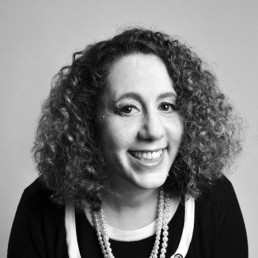
Written by Laila El-Metoui
Equality Advocate | Stonewall Lesbian Role Model 2020 | Pride 365 Champion | Helping leaders foster inclusive & diverse workplaces through training and consultancy | Founder of Pride in Education and Educating OUT Racism
A massive thank you to DiverseEd for organising such a comprehensive event.
My reflections are about us having a trauma-informed, bias-aware and compassionate curriculum, so what does that mean?
One of the previous panelists (Amanda) mentioned refugees and trauma in the previous panel and my curriculum background is in ESOL , EFL teaching English to migrants, refugees and people seeking refuge which is better than referring to them as ‘asylum seekers’. I will be talking about it from a Further Education perspective in the UK and looking at the language we use.
Trauma-informed:
We can look at it from many angles but I’d like to suggest a couple
Firstly personal trauma , you cannot look at someone and guess what their background and experiences have been. Secondly historical trauma – which includes decolonising the curriculum and not looking at subjects in silos for example when teaching French one could look at where it is spoken in 29 countries, why ? because France colonised those countries, the language we use is important, these countries were not ‘conquered’ as stated in britanica.com but invaded. From an ESOL perspective it means being mindful of potential triggers and having systems in place to support them but also the trauma that people may have experienced as a result or leaving their homes or the current pandemic.
Bias-aware:
Breaking down stereotypes and being aware of our own prejudices is a good way to start.
Looking at LGBT+ lives for example, some of the myths commonly heard within the sector include – you cannot embed LGBT+ within classes where people have low level of English, looking at the the language we use and teach for example asking about pronouns for referring to partner and sibling rather than husband and wife, sister brother will lead to a more inclusive curriculum. Other panellists (Lisa) mentioned stories in the previous panel and Chris talked about the lack of visibility in course books, for those very reasons I have designed my own resources, one can embed any themes within a story. I have written narratives which included themes such as domestic violence, social isolation, my journey to the UK. By creating relatable and meaningful content we will develop more than reading, writing, speaking and listening skills, skills like empathy, critical thinking and compassion.
Compassionate:
Compassion is about kindness and fostering an environment where people are free to make mistakes, to experiment and express their authentic selves. Challenging discrimination compassionately, eliciting the difference between understanding, agree and accept; eliciting the difference between an insult and an opinion. This needs to be contextualised within a whole organisational approach and include:
- the use and collection of data so that the content reflects local population
- understanding achievement, success and progression
- a zero tolerance policy with regards to discrimination
- easy access to resources knowledge sharing and training
- making different groups visible and represented (365 days a week) not just for black history month, LGBT HM or disability week
Organisations also need to have:
- supportive forums to raise issues
- a clear and visible commitment from senior leadership
But we also need funding, the ESOL funding has been slashed by the UK government more than halved in fact in the last 5 years. Other factors include the imminent exit from the EU, the immigration Law and many other socio-economic factors which contribute towards a hostile environment for people of colour.
Digital exclusion has been highlighted by this pandemic with the most vulnerable groups not being able to access ESOL provision due to not having a mobile phone or access to the internet. Giving people the tools to access learning is part of having a compassionate curriculum.
To end on a positive I want to highlight how kind people have been and I’d like to invite any ESOL practitioner watching to join the newly created Facebook group called Digital pedagogy for ESOL teachers, where practitioners can get practical tools and resources to share knowledge and support each other: https://www.facebook.com/groups/741096156803038/?ref=share
Laila El-Metoui she/ her / hers
https://www.linkedin.com/in/lailaelmetoui/
Equality Advocate | Stonewall Lesbian Role Model 2020 | Pride 365 Champion | Helping leaders foster inclusive & diverse workplaces through training and consultancy | Founder of Pride in Education and Educating OUT Racism
Remembrance Day
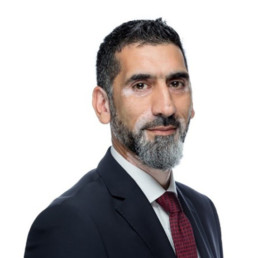
Written by Sajid Gulzar
Founding CEO of the Prince Albert Community Trust (PACT) and National Leader of Education
On October 31st 1914 a 26 year old gunner and his machine gun crew managed to hold their position against a German onslaught. The Germans were using more effective weaponry and outnumbered the gunner and his crew five to one. A second crew fighting alongside the gunner were killed as a result of a direct shell hit. The consequences of the machine gun crews being over-run were potentially devastating. The goal of the German offensive was to capture the vital ports of Boulogne and Nieuport.
The gunner and his crew held the Germans off, they continued to fire at the enemy all day. When all around him had been killed, despite being shot, the gunner continued to fight. Eventually, he was left for dead. The stand made on that autumn day on water-logged ground during the First Battle of Ypre, allowed reinforcements to arrive and the German advance was curtailed. The gunner would later be awarded the Victoria Cross. His citation noted ‘remained working his gun until all the over five men of the gun detachment had been killed.’
The gunner was born in the Punjab province of what is now Pakistan and his name was Khudadad Khan. This young man, a member of the Duke of Connaught’s Own Baluchis helped to ensure that two ports used to supply British troops with vital supplies, remained in Allied hands. He was the first Muslim soldier to be awarded the Victoria Cross and there is a commemorative stone in his honour at the National Memorial Arboretum.
During the course of the Great War, hundreds of thousands of young men left their homes behind to travel to Europe and fight for Great Britain. Many would never return. My mother recalls her father telling her that some villages were almost cleared of their young men. The level of sacrifice is indescribable. Khudadad Khan’s story is one amongst countless others of courage and lives cut short on the battlefields of Europe.
Many of you reading this may be reading about Khudadad Khan for the first time. I first heard about him about 10 years ago. I didn’t know about the Indian contribution to the war effort until well into my twenties. That is despite being taught history at school. Despite teaching history at school. It wasn’t until 3 or 4 years into my teaching career that I discovered that 1.3 million Indians including 400,000 Muslims fought during WW1. That many thousands of them died on foreign shores, having never been to the nation they were sacrificing their life for. I didn’t know that 12,000 wounded Indian soldiers were sent to Brighton, that many of them died and were buried there in the cemetery at Horsell Common.
Soon after I started teaching, the events of 9/11 changed our world. I remember watching the news in horror in 2005 as the details of the 7/7 attacks in London were emerging. I was actually on a visit to the school where I would be taking up a new role in the approaching September. Following the London attacks in particular, there has been a lot of soul searching about identity and belonging. What must the level of disenfranchisement be for someone born and brought up in a country to attack it from within. This is of course the extreme end of the spectrum that goes all the way from not quite feeling you belong to all out war.
I know this may appear a gross over-simplification but identity and belonging are definitely a part of the mix. So, where does Khudadad Khan and his regiment fit in? I spent much of my youth feeling like I don’t belong, particularly when it came to The World Wars. More than once I can remember being told that I didn’t deserve to be here, that the good people of Britain had sacrificed their lives for the freedoms that my family and I were enjoying. That somehow my being here was a betrayal of that sacrifice. I remember that my defence, at least as an adult, was based on the need of the country to rebuild post war and the importance of the migration of my father’s generation to Britain. At the time though, I didn’t know that my grandparents peers had fought and died too, in their hundreds of thousands.
I remember visiting a great aunt on a trip to Pakistan when I was 20 (I didn’t feel I belonged there either but that’s a whole other blog!). Her son had gone to fight for Britain in Burma during WW2. He never returned. 50 years after he left for war, she still waited for him to return. Would my knowing these stories have made a difference growing up? Had I known about the sacrifice of my forefathers to secure our freedoms, had I known about the extraordinary bravery of Khudadad Khan and countless thousands like him? Had I been taught that I had a vested interest, a shared history of blood shed for the cause? Quite possibly yes to all of the above.
What is quite striking is the missed opportunity at this time of year to use this shared history, this shared sacrifice to bring communities together, cement feelings of belonging and to help secure identity. It is not just schools that miss this opportunity, from film to the media, opportunities are missed or just ignored. The recent Dunkirk is an excellent case in point. The film completely ignores the Indian soldiers who were present and took part in the events depicted in the film. I’ve seen many a film and a documentary, chronicling the World Wars. What I haven’t seen very often is a true depiction of the scale of the commonwealth contribution to the cause. When in the epic and beautifully shot 1917, there was an attempt to include commonwealth representation, one right wing commentator described the presence of non-white soldiers in the film as ‘incongruous’. I would suggest that the reason for this is that their stories have never been told. As far anyone learning about the World Wars in school or watching films about them is concerned, they were fought by white men, predominantly in Europe.
The commonwealth contribution needs to be compulsory learning. Our children need to know that the poppy clad fields of European battlefields are soaked in the blood of the non-white commonwealth soldier as well as the English Tommy. Part of this shared history is that our children often live in neighbourhoods, streets and even houses that sent very young men off to war. In some cases these children also have forebears who left their towns and villages more than 3000 miles away to fight in the same war for the same cause.
If you read this whilst thinking about your school’s plan for marking VE Day and Remembrance Sunday, then please share the stories of the young men and women who came from afar as well as those closer to home. Let the poppies you sell symbolise shared sacrifice and shared history in this age of divisiveness.
“It’s a numbers game, but sh*t don’t add up somehow.”
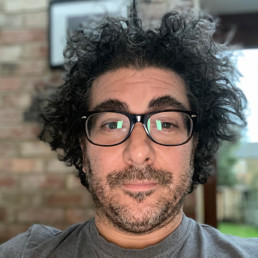
Written by James Fornara
20 years of experience in teaching and runs Dpat that is engaged in education consultancy, youth work, music, production and DJing.
In the wake of John Swinney, Scotland’s Education Minister announcing that all Scottish A-level and GCSE grades will be marked exclusively from teacher predictions and coursework marks, it is worth examining what “thinking” lies behind this debacle. Sadly once again it is an example of the antagonistic and short-sighted dogma of the DfE. Any objective person would consider the best people to judge the quality of students’ performance to be the teachers that taught them, not some statistical nonsense that artificially manufacturers the data that the department wants. But teachers just can’t be trusted can they? Certainly not to stick to the constructed reality of exam reforms and the data sets created by the Orwellian fantasy of “school improvement” undertaken over the last decade. Of course if we’d stuck with modular examinations and kept significant coursework elements to qualifications we wouldn’t be in this mess would we…
And now the tarantula troubling Secretary of State for Education Gavin Williamson has announced a “triple lock” – which could boost the replacement grades for exams cancelled in the pandemic. It means pupils getting A-level & GCSE results can accept that estimated grade, or change it for a mark gained in a mock exam. Or they can instead choose to take a written exam in the autumn!? And this guidance comes a day before the results are released, with no consultation with the teaching profession. Furthermore schools minister Nick Gibb has the chutzpah to refuse to apologise for what he describes as “solutions” to a problem he has been instrumental in creating!?
What an absolute disgrace this all is. A perfect example of the misguided and uninformed policy credenda obsessed with a bogus improvement of “standards” and a fundamental mistrust of educators. This systematic denigration of the teaching profession is a dangerous political endeavour that is destroying an education system that used to be seen throughout the world as exemplar.
Links to some of the articles, research etc. that this blog post is based on:
ASCL Coronavirus Briefing 90 11th Aug. 2020
Not entirely sure of the veracity of this study but some interesting reading, did you know the cost of examinations has more than doubled thanks to Gove’s reforms!?Examination Reform: Impact of Linear and Modular Examinations at GCSE
https://www.bbc.co.uk/news/education-53746140
Broad and Balanced
There’s some interesting observations in the work of the Accountability Commission group of the NAHT which “sought to determine the strengths and weaknesses of the current accountability system”, but there were three points that caught my eye from the excellent summary provided by Ross Morrison McGill:
Where performance is a measure, schools prioritise parts of the curriculum over others (‘teaching to the test’).
Where systems focus on “borderline” measures, targeted teaching limit pupils’ experience of the curriculum.
I am sad to say that both these observations are entirely accurate based on my experience of over twenty years of working in education in London, and particularly in my area of specialism – performing arts and creative media production. I would point out that this is not because school leaders or teachers want to but the perverse incentives of our current school accountability system force them to do so.
I was also struck by the quote below from the text of the report:
National Foundation for Educational Research (NFER), September 2018 (page 35)
If Canada, Finland & Singapore do not have school inspection feature in external evaluation (I) and these countries perform better than England in PISA tests; cited as places to visit, we must question OfSTED’s future within the English system.
It will be interesting to see how the DfE will respond to the commission’s findings I do hope it will fair better than the good people at The Black Curriculum who were outrageously rebuffed by the tarantula troubling secretary of state for education who declined to meet them to discuss their most excellent work.
Given the idiocy of the foreign secretary you’d have thought Gavin would want some help in educating his peers let alone the nation’s youth…
Thanks to @TeacherToolkit & @curriculumblack for the tweets this piece is based on.
A vision for the “new normal”
Amidst all of the tragedy of the covid-19 crisis there could be a preverbal silver lining. We have a chance to transform our education system and there is much debate about how we must change and adapt to our new reality. In particular two articles this week caught my eye. The first by Fiona Millar in the Guardian is an excellent examination of the failures of government policy over the last decade. In particular she highlights how the dogmatic promotion of “academic” subjects, academisation (privatisation in plain sight) and the misinformed notion that sees schools only “…as vehicles for the transmission of knowledge…” must change if we are to meet the challenges our education system faces.
One of my biggest irritations working in education is the erroneous hierarchy of subjects taught in school. I bristle every time someone talks about academic subjects. Firstly, the use of the word academic to describe subjects such as maths, science, English rather than music, PE or drama is a misuse of the word. Academic means being taught in school, therefore any subject taught in school is in fact ACADEMIC! The use of the word academic as a shorthand for subjects that matter is highly revealing of the outdated thinking that has sadly dominated education policy for far too long. It is why we disregard areas of study that the UK is a world leader in. Since the introduction of progress 8 & attainment 8 there has been a reduction in the number of students taking GCSE drama of over 30%. Likewise lack of funding has led to the decimation of music tuition within state schools and despite ever increasing concern about fake news and the need to improve the media literacy of our young people, media studies is still considered a ‘mickey mouse’ subject rather than a key part of any 21st century curriculum. As Rufus Norris (director of the National Theatre) wrote two years ago we need “…an education system fit for the 21st century, one that champions this country’s creativity as the foundation of its economic health.”
The second article in Schools Week by Angela Ransby is a call to arms for schools and local communities to work more closely together. I have to confess to arching an eyebrow at a CEO of a MAT extolling the benefits of local collaboration, rather like how local education authorities used to work!? That said, Angela’s central point that alternative provision is often the crucible of innovation is one that unsurprisingly I wholeheartedly agree with. We must rebuild our current “fractured” system prioritising collaboration and local accountability and reject systems and structures that prevent this. Progress, standards and improvement do not need a marketplace, the commodification of teaching and learning or the curse of managerialism to occur. In fact they thrive when we share, collaborate and respond in a locally co-ordinated and democratically accountable manner to the needs of the communities that our schools serve.
Curriculum and what we teach our children is a thread running through both articles and a friend of mine introduced me to The Black Curriculum this week and I am very grateful. There is a long, long overdue imperative to improve the way in which our entire education system serves ALL students and I would whole-heartedly recommend the writing of Darren Chetty, Jeffrey Boakye and Akala for those interested in this hugely important work. Reflecting on my own education and in particular the history curriculum I followed, is it any wonder that there is a lack of understanding in the UK around issues of structural racism, intersectionality and white privilege when the history we teach our children is: the Romans, 1066, some stuff about kings and a couple of queens, skip over the savagery of the British Empire and finish off with the two world wars that we supposedly won!? We have to teach the real history of the British empire and examine some of the darker aspects of Enlightenment thinking in order to help create a fairer and more just society.
Some big ideas to transform our education system:
- Rip up our current curriculum and replace it with a much broader one. Forget about the utterly misplaced notion of academic and vocational subjects. There must not be a hierarchy of knowledge, understanding how the plumbing works is as important as knowing what the periodic table is.
- Dispense with almost all nationally standardised tests. We could keep something like A-Levels but any new system cannot be solely reliant on terminal examinations and must include coursework/formative assessment activities.
- Create a national curriculum that takes account of all the cultures and history that make up our country. The diversity of our little island has always been one of our greatest resources and our schools must be the place in which we celebrate and develop our understanding of the multicultural country that we live in.
- Place control of our school system back into the hands of local education authorities who are clearly best placed to support schools to meet local needs and increase collaboration, which in turn will drive improvement.
James Fornara is the recently resigned Principal of Wac Arts College the first alternative provision free school in the country with a specialist curriculum of performing arts & creative media production.
educate3000: make learning fun again: View more posts

